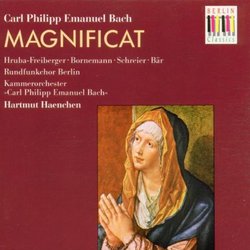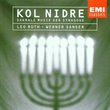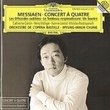| All Artists: Olaf Bär, Hartmut Haenchen, Carl Philipp Emanuel Bach Chamber Orchestra, Venceslava Hruba-Freiberger, Peter Schreier Title: CPE Bach: Magnificat Members Wishing: 0 Total Copies: 0 Label: Berlin Classics Original Release Date: 1/1/2008 Re-Release Date: 2/13/1995 Genre: Classical Styles: Opera & Classical Vocal, Chamber Music, Historical Periods, Classical (c.1770-1830), Symphonies Number of Discs: 1 SwapaCD Credits: 1 UPCs: 782124101121, 413108100112 |
Search - Olaf Bär, Hartmut Haenchen, Carl Philipp Emanuel Bach Chamber Orchestra :: CPE Bach: Magnificat
 | Olaf Bär, Hartmut Haenchen, Carl Philipp Emanuel Bach Chamber Orchestra CPE Bach: Magnificat Genre: Classical
|
Larger Image |
CD DetailsSimilar CDsSimilarly Requested CDs
|
CD ReviewsA Nice Performance of CPE Bach's Magnificat Obi | SLC, UT | 07/10/2008 (5 out of 5 stars) "The Magnificat in D by Carl Philip Emmanuel Bach is a rare early religious work coming from his early Berlin period. Composed in 1749, it shows some elements that suggest some influence from his illustrious father, but for the most part, it is very original and forward thinking. The one fugal work contained is the at very end, with the "sicut erat".
The work starts with a manficient opening chorus which starts the work out with alot of energy. The opening chorus is repeated just prior to the "sicut erat" to the words of "gloria patri, gloria filio, gloria spiritui sancto (I hope I spelled those right)." One of my favorite pieces is the "deposuit" which is a alto/tenor duet that has some nice harmonic progressions used in a very nice theme. CPE Bach plays an important role in music history, and is generally considered to be a transitional composer between the high baroque and the classical period. However, CPE Bach's music is so unique in so many ways, it stands on it's own as a powerful but unique genre of music. His influence upon succeeding composers is well documented, but perhaps it was his essay on playing keyboard instruments that probably cements him as a great musical figure. This particular performance of the Magnificat is one of the best I've heard. Another recording I recommend is by the Academy of St. Martin in the Fields which also includes J.S. Bach's Magnificat." |

 Track Listings (15) - Disc #1
Track Listings (15) - Disc #1


